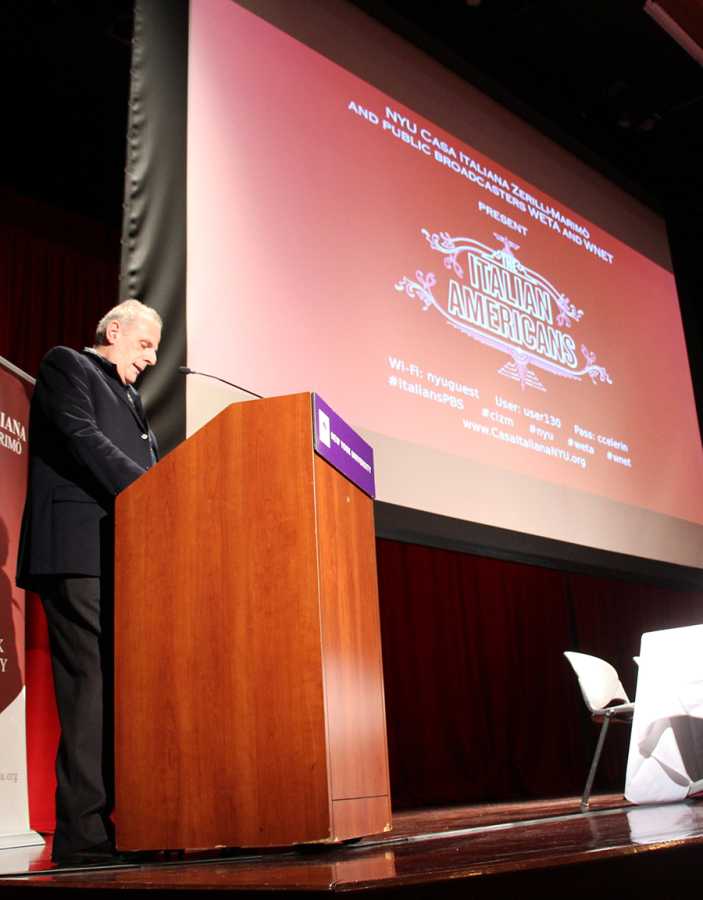Film event lauds Italian Americans
Stefano Albertini, the director of Casa Italiana Zerilli-Marimò, gives the opening remarks.
February 18, 2015
The only time it is acceptable to wonder aloud if Frank Sinatra and cannoli were the most important Italian cultural contributions to the United States is when an Italian is asking the question in a room full of fellow Italians.
And it is even better if the proposition is met with laughter, as it was when Neal Shapiro, president and CEO of WNET, suggested it in Kimmel’s packed Eisner & Lubin Auditorium at a preview screening of “The Italian Americans” on Feb. 10.
John Maggio’s four-hour film explores the evolution of the identities, stereotypes and lives of Italian-Americans, and includes interviews with prominent Italian-Americans such as Supreme Court Justice Antonin Scalia and House Minority leader Nancy Pelosi. The film’s first installment aired on PBS Tuesday, and the second will play on Feb. 24.
Prior to the 45-minute preview, Mayor Bill de Blasio — a second-generation Italian-American and NYU alumnus — addressed the crowd and emphasized his personal connection to the film’s story. His mother, Maria, was the daughter of Italian immigrants, and he traveled to Italy this summer to visit his family’s roots.
De Blasio urged audience members to make the effort to retain their heritage in whatever ways they could.
“It’s up to us to take the ideas and the messages and the meaning of the culture to maintain it and keep the meaning alive,” de Blasio said. “It’s something we each have to do in our own way.”
Following de Blasio’s remarks and the preview screening, author and NYU professor Maria Laurino and writer Gay Talese — both of whom are featured in the film — joined Maggio in a panel discussion to answer audience questions.
Laurino, who wrote a companion book to the film, alluded to the similarities between the difficulties that Italian-Americans and other immigrant groups still frequently face.
“We’re all grappling with the same issues of identity and acceptance,” Laurino said.
Talese spoke about his Italian-American heritage, which he described as a conflict of loyalty between his allegiances to the two countries. Born in 1932 in New Jersey, Talese was a young boy during World War II and had uncles fighting in the Italian army.
“It was not a pleasant, not a comfortable history in the 1940s,” Talese said. “I’m one of the few here tonight that remembers the awkwardness of the Italian-American experience.”
These kinds of dialogues are the ones that Maggio said he hoped the film would drive.
“My hope is that [the film] starts a conversation about immigration in this country,” Maggio said. “You come here because it’s a land of opportunity but you don’t realize you have to start at the bottom.”
Ultimately, Maggio hopes the film will pay homage to the struggles of the first Italian-Americans and change how viewers think about the immigrant experience.
“I think with anything historical you learn about the present by looking at the past, so you don’t make the same mistakes again,” Maggio said.
A version of this article appeared in the Thursday, Feb. 19 print edition. Email Julianne McShane at [email protected].
























































































































































